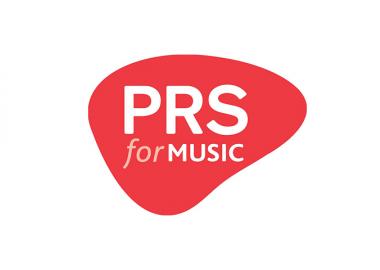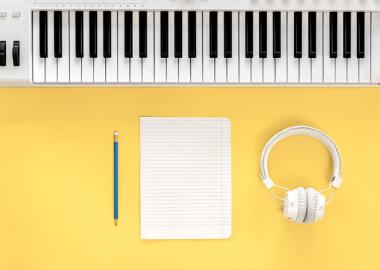Obtaining music from publishers is vital for leisure-time music groups. Whilst it can be a big and sometimes difficult task, it doesn’t have to be. We have worked with various publishers and the Music Publishers Association (MPA) on this guidance to ensure our groups can access the music they want and receive the best possible service in doing so.
Whether you need choral scores or a set of orchestral parts, the procedures outlined below will help to ensure that you receive what you want, when you want it and to avoid misunderstandings, delays and errors on the part of users and publishers alike.
We have split the procedure into five broad categories:
- How to find the music you want
- Getting a quote
- Placing an order
- Receiving and using the materials
- Returning the materials
But before we start we would like to give two general pieces of advice:
1) Give yourself time: plan your programme as far in advance as possible and give yourself plenty of time to find music, get quotes and place an order. As volunteers we know you are busy, and music publishers have high workloads as well. Allowing plenty of time gives you the best chance of finding the music you want at a price you want. It also means the music publishers have the best chance of ensuring you get what you need when you need it. Many publishers will quote a year or more in advance of when music is needed.
2) Don’t be afraid to negotiate: publishers want their music to be hired and performed and are happy to work with, and help, leisure-time groups. It is worth developing a relationship with both the hire librarians and the promotion department of music publishers, who may be willing to negotiate on price.
How to find the music you want
The task of finding music can at first seem confusing, whether you’re trying to find out who publishes a specific title or which agent is responsible for a publisher’s titles in your territory.
Music publishers have recognised the need to streamline and simplify the process of obtaining music, and many of them have joined together to create the Zinfonia music portal . This is a website that combines the catalogues and databases of many of the world’s largest classical music publishers, making all the information available in one place.
After completing the free registration process, Zinfonia users can:
- find out who publishes a specific piece of music
- obtain a quote and/or ask questions about buying or hiring the music
- place an order
- view all their orders in one place and receive order status updates from the publishers
- store the results of previous searches together in one place
If the piece you are looking for is not listed on Zinfonia, then you will need to contact the publisher direct to get more information or a quote. Here are some other ways you could find out who the publisher is:
- For orchestral pieces, you may be able to find the information in David Daniels’ book Orchestral Music: A Handbook – most major music libraries will have a reference copy, or you can use the online facility (a subscription fee is payable).
- For choral music, you can research on Musica International, an international project to collect all choral music in one database. You can search for detailed information on over 200,000 pieces including libraries where the music is available across Europe. Making Music members have free access to the database.
- Try searching for the work in the British Library catalogue, which lists details of the publisher for each item.
- The MPA is likely to be able to help – contact them by email or phone.
- PRS for Music have a database with all their members’ works – you have to contact them to access that information.
- Many composers have dedicated societies who champion their work, and who may know who the publisher is or how you can obtain copies of the music. An online search (e.g. for ‘Delius Society’) will help you to find the contact details of these societies.
- Living composers will often have their own website where the information will be listed or through which you can contact them to ask questions.
- Your local music shop or music library may be able to help you find the relevant information.
- An online search may also yield the information – type ‘publisher’ followed by the composer’s name and the name of the work.
Publishers are able to supply full scores on loan for perusal for the purposes of programme planning, and some even offer online scores as a free alternative to receiving hard copies in the post. There may be a small charge for this service to cover administration costs.
For works that are out-of-print, the publisher may have an archive service. And if a publisher does not have enough copies available, it is not unknown for them to grant a licence to copy extracts from a large work on the strict understanding that the copies are destroyed after the performance. You may also be given permission to make a limited edition of a work if a suitable score does not exist.
Getting a quote
Music publishers will usually give you a quote to assist you in your planning, without any obligation to hire or buy. In order to give an accurate quote, they will need the following information:
- Title and composer of work
- The specific orchestration or voice combination you require (some pieces are available in different combinations to suit differently sized groups)
- The specific edition you require, if there is more than one available (check this with your MD)
- How many copies you need, if applicable
- Delivery address
- Date required
If you are planning to hire the music, you will usually need to supply the following additional information, which will be used to calculate your hire fee:
- The period for which the materials are required (remember to factor in time to receive, sort and issue the music before rehearsals start, and time to collect music and chase missing parts after the performance)
- The amount of material required and the number of performances
- The number of individual parts required
- How much of the work you intend to perform (if you are only performing excerpts or a short section)
- Whether the materials are required for rehearsal/readings only, performances or recordings
Some publishers may also ask for the name of your conductor or soloist(s).
When contacting music publishers for a quote it is best to include all this information in your initial query. You could, for information purposes, also include what you anticipate the audience size to be for the performance of the work.
Make sure you also tell the publisher that you are a leisure-time music group in order to ensure you are charged the correct tariff.
Special fees may apply for world and territorial premiere performances, broadcasts or recordings. Most publishers are happy to provide copies of their current hire tariffs, or alternatively supply a quote for a specific hire period, upon request.
Please be aware that publishers have individual credit and payment terms and may require full settlement in advance of dispatch.
Top tips:
|
Placing an order
If the music you require is listed in Zinfonia, you can get a quote, send messages to the publisher and order your music through the website. This allows you to keep track of all your quotes and orders with multiple publishers in one place.
The other main alternative to Zinfonia is to email the publisher with your order.
Some publishers also still accept letters and faxes, or may have ordering facilities on their own websites. It’s advisable to get a quote in writing from the publisher prior to placing your order.
If you haven’t already obtained a quote, you will need to supply the same information as mentioned in the ‘getting a quote’ section, and additionally:
- Invoice address and phone number
- Delivery address and phone number
Help the publisher get your music to you on time by placing your order as early as possible and ideally no later than one month in advance of your requested delivery date (or longer for a work that needs to be sent from outside the UK). Some publishers may be able to supply materials at shorter notice, but additional fees may be charged.
If you are purchasing copies for sale to members, try to get a sale-or-return agreement, in case you over-order the amount of copies you need. However, it is still essential to get a show of hands from the members for approximate numbers so that you send back as few copies as possible. You may get away with returning 80% of your order once, but not the next time!
Copyright and permission/licencing issues
In the UK a piece of music is generally in copyright for 70 years after the death of the creator(s). This will most often be the composer but if a piece of music has been arranged, edited or translated then there will be copyright in those creations. The publisher will be able to advise on the copyright status of a musical work.
Generally publishers’ agreements relate only to the hire of physical performance materials, and though a publisher may ask about your intention to perform or record the music at the time of hiring or buying, permissions and licenses are unlikely to be included and you will need to obtain these separately from either PPLPRS or PRS for Music. Please see our guidance on copyright and licensing for more information.
Importation
Caution needs to be taken when obtaining materials from abroad as material legally available overseas may infringe current UK copyright law if imported. Always use music from a UK publisher wherever possible, and if you need to import the music from abroad, seek advice from the relevant UK publisher before importation. Do not assume that hire materials obtained via overseas online services can be lawfully used in the UK.
See the ‘how to find the music you want’ section above for more information on how to find and contact the correct publisher.
Receiving and using the materials
Dispatch and receipt of hire materials
Publishers will endeavour to ensure your order arrives on or by the date requested. The materials should be checked against the delivery note upon receipt, and any deficiencies should be notified immediately to the publisher. Delivery charges will usually be levied in addition to the hire fee (and VAT may be payable on this charge).
Condition of hire materials
Publishers will always endeavour to supply the best materials available from their stock at the time of order/reservation, but if you have any concerns about the condition of hire materials, tell the publisher as soon as possible to see if there’s anything that can be done.
Arrangements, adaptions and parodies
If you want to make any changes to the way copyright music is performed you should contact the publisher as alterations, arrangements, adaptations or parodies may require the publisher’s prior permission. This also includes significant re-orchestration and cuts in performance, however minor re-orchestration and cuts are usually fine and do not require permission. See the section on arranging music in our copyright and licensing guidance for more information.
Copyright Restrictions – photocopy and graphic reproductions
Unlicensed photocopying and graphic reproduction are unlawful under the Copyright, Designs and Patents Act 1988 and permission to make copies of music that is still in copyright should always be sought from the publisher. As a general rule, you must not make copies or any other reproductions of the printed music in order to avoid hiring or purchasing sufficient original copies for your group. The MPA have a Code of Fair Practice that helps to interpret the copyright laws and details certain exceptions/circumstances where photocopying or other reproduction might be possible. You should always check the code first and if you think your situation falls within the exceptions make sure you follow the requirements detailed in the code. Making Music are also happy to advise on this topic.
If you want to include any musical extracts or print the words from a piece of music in a concert programme, permission must be sought from the publisher. In many instances publishers can supply biographies, photos and programme notes for concerts and will advise you if there are any associated costs.
Hire materials should not, under any circumstances be made available to third parties without the permission of the publisher.
Returning the materials
The person who signed the hire agreement (if one has been issued) or placed the order is responsible for the return of materials as supplied. To avoid damage in transit, pack materials securely and return them by trackable means or as agreed with the publisher – for example some publishers now offer a collection service to customers. Remember to include your details in the package so the publisher can identify who the parcel is from and also include copies of the concert programme(s) if they have been requested. You will be charged for any late or lost material, so ensure that you return music promptly.
Provided the materials are returned in good time, most publishers will allow extra time for the recovery of odd parts that may be missing before invoicing for their full replacement costs. However, you should always communicate with them to let them know that you are tracking down missing parts, and don’t assume that the extra time will be automatically granted.
The hirer is responsible for ensuring that the materials are returned complete and in the same condition as they were received. Any missing or defaced materials could incur a charge at full replacement value.
We hope you find this Making Music resource useful. If you have any comments or suggestions about the guidance please contact us. Whilst every effort is made to ensure that the content of this guidance is accurate and up to date, Making Music do not warrant, nor accept any liability or responsibility for the completeness or accuracy of the content, or for any loss which may arise from reliance on the information contained in it.










